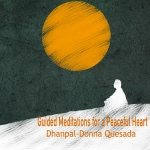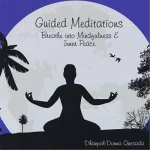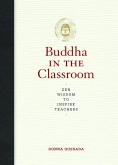
Occasionally I share my college students’ end-of-semester project journals. They may choose from among different project options, which all relate to the Yogic 8-Limbs in some way, and which all require “personal experience.” This one was so well done that I decided to share it for two reasons… firstly, in the hope that it may inspire others. But also, because it is personally gratifying and makes me feel as if I have done some good for this world, during my time here on earth. This is especially meaningful to me in the years leading up to retirement. ~DQ
Below is her work…
Renunciation Project—My Vegetarian Journey
Why I chose this project…
I have always wanted to become vegetarian but I never knew where to start. I chose this because I thought this would be a good trial run to see how I would handle it and if I would like it. If I can handle being vegetarian for four days maybe I could go longer. I am going to renounce meat for four days. I cherish animals and I have always felt guilty about eating meat but I never could stop eating it. Hopefully with this assignment, I can enlighten myself on what goes on behind the scenes of factory farming and understand the dangers of eating meat.
How it relates to eastern philosophy…
Vegetarianism is connected to Dharmic traditions that originated in ancient India and Nepal such as Hinduism, Jainism, and Buddhism. In Hinduism and Buddhism, vegetarianism is promoted by scriptures and religious authorities however, with Jainism, vegetarianism is mandatory for everyone. The First Precept prohibits Buddhists from killing animals. The doctrine of karma teaches that people who perform cruel acts on animals will be punished in their next life. Buddhists treat humans and animals equally. Buddha described eating meat as an ignorant craving. Hinduism is the oldest of the Eastern religions and it is an early supporter of vegetarianism. To Hindus, vegetarianism leads to the path to being truly holy. The scriptures of Hinduism set out the principle of non-violence, called Ahimsa. Ahimsa is a major part of many Eastern religions. Killing any animal is seen as a violation of Ahimsa. Some countries respect animals greatly such as India. In India, the cow is sacred because it is considered to be an animal favoured by the Supreme Lord in the Vedas, Lord Krishna.
Research prep and how it affected me…
For my first info item from the Gentle Barn I chose the article “These 6 Things Happen When You Give Up Meat” by Megan Othersen Gordon. I chose this article because I have always wondered what would happen to the body if I would give up meat. I thought giving up meat would have negative side effects but after reading this article, I learned that there are some positive sides to giving up meat. I learned that by not eating meat, you could gain some healthy bacteria in your gut. This was kinda surprising to me because I didn’t know that not eating meat could help your stomach. With this fact, you would think people wouldn’t eat meat. I also learned that you can bloat from not eating meat at first, which was weird. The second info item I chose was “7 Things That Happen to Your Body When You Give Up Dairy” by Perri O. Blumberg. I chose this article because since I already read about what would happen if you give up meat, I also wanted to read what would happen if you would give up dairy.
One thing I learned from this article is that giving up dairy will help your digestive system. It can help reduce bloating, gas, and constipation. It was crazy to think that giving up dairy can be so vitale for having a healthy digestive system. I also learned that giving up dairy will clear your skin, which is great to know because I sometimes break out. The third info item I chose was “Meat Consumption on The Decline Let’s Keep The Momentum Going!” by The Guardian. I chose this article because I wanted to learn more about how low the numbers are getting for meat consumption. I learned that the demand for meat has declined for a decade in the US. That’s really big coming from the second-largest consumer of meat per capita. I also learned that with the decline of meat production, many businesses like Beyond Meat and Beyond Eggs are getting bigger and bigger. It was surprising to me that so many people have switched over to Beyond Meat given that Beyond Meat is terrible.
From watching the “Meet Your Meat” documentary, it talked about the real life of meat and dairy farms behind the scenes. It showed how they kill animals, how they are put in small cages, and how they actually treat animals on these farms. In most of the clips, it showed how pigs and chickens were in cages smaller than their bodies and how cows were in horrible milking cages. I couldn’t believe how people would treat animals. The documentary gave you a day in the life of what these animals go through every day. It showed the conditions the animals were kept in and how badly they were treated. This affected me by not wanting to eat meat again. If it’s hard for me to watch the whole documentary, I should tell myself that I shouldn’t eat meat. How is that fair to the animals that I find this appalling yet I still eat meat. This video has affected my work by showing me that giving up meat for four days isn’t just for an assignment, it’s for the animals that are living in terror every day. It’s informed me that millions of animals are being crucified every day and for what? So I can eat meat? There are other options to meat that I need to try to at least stop some of these animals for being hurt.
The second documentary I watched was “Vegucated”. The documentary shows people who are usually meat eaters trying converting to a vegan diet. The documentary follows three people who are not vegan who agree to adopt a vegan diet for six weeks. The three people who were being documented visited an abandoned slaughterhouse and saw the reality of animal farming. After they visited, they realized how amazing being a vegan was because they know they are doing good. The documentary talks about the struggle that some people feel towards becoming vegan, how people eat meat but love animals, and how being vegan helps your health and the world. This has informed me that even people who love meat can be vegan so maybe I should too. If they can do it even if it’s for a little time then I should be able too. This documentary gave me hope that I can become vegan or vegetarian. Normal people in New York did it so why can’t I? My work has also been affected because I have more hope that I can accomplish four days of being vegetarian. Seeing normal beings become vegan for six weeks made me realize that I can be a vegetarian for four days.
Support buddy interview…
“Why did you become a vegetarian/vegan?”
I became vegetarian when I was 6 because I came to a realization that I didn’t want to contribute the commodification of and cruelty to animals in our food system, and became vegan in 8th grade for environmental reasons (water consumption, deforestation, greenhouse gas emissions).
-“How do you deal with opposition?”
I deal with opposition by not getting overly defensive and explaining myself when necessary. Essentially knowing when to choose my battles and to do so without attacking the other person. Like planting a seed.
-“How has it impacted your life?”
It has prompted a deep passion for food and made me more comfortable to step out of my comfort zone and advocate for collective progress through individual change. I am also more socially aware and compassionate as a result.
-”Do you have any advice for me?”
I would say that something as seemingly unimportant as a dietary choice is something that can actually have a big impact, so evaluating decisions you make on a daily basis can make you more self-aware
My write up…
-”Did you feel you like you were successful?”
I feel like I was successful. I did not eat meat for 4 days and I was proud of myself for it. Even though I wanted to eat meat very badly, I kept up with it for four days. I have never done anything like this before especially cutting out something that I eat everyday. I would watch my family eat meat for dinner and breakfast and I told myself I have to keep going to achieve my goal.
-”Did you encounter support or resistance from family and friends?”
Yes I did encounter support from my family. My mom loves animals and has always wanted to not eat meat. She was very proud of me and she was the most encouraging. When I wanted to give up she would encourage me to keep going. She was probably the reason I accomplished this. Having a supportive family can get you far and I’m glad I have one.
-”Did you have cravings and how did you deal with them?”
Yes I had tons of cravings. Almost everyday I have eggs and bacon for breakfast and to me, bacon makes the whole meal. Not having bacon in the mornings was the worst. The eggs didn’t taste good without the bacon. To deal with this craving, I went to the store and bought fake bacon. However, that tasted worse than the actual bacon. I decided to have pancakes in the morning for the rest of the 3 days instead of having plain eggs. For dinner one night, my mom made pork chops. Pork chops are my favorite meal and not being able to have it was the worst since my mom hadn’t made them in a while. Instead of having meat, I had a trader joes salad for dinner. Overall, dealing with these cravings was hard. I had to deal to them by reminding myself to keep going and finish the challenge. I can’t give up because of cravings, I have to do it for the animals. After the first two days, my craving started to get a little easier and that was when I told myself that I have to keep going.
-”Did it impact your worldview and way of looking at animals?”
Yes, it did impact my worldview. I see animals as equals now since I have enlightened myself on the pros of being vegetarian. It also impacted the way I see animals. Watching the videos on how animals are actually treated was haunting. I couldn’t believe that humans could do that to animals. I always thought that animals were killed humanely for the most part but after watching the videos, I know they don’t. Animals don’t choose to be slaughtered for our meat, they want to live freely. The least I could do is not eat meat and save a couple animals a year. I am more sympathetic for the animals now that I have seen what they have to go through to give us meat.










